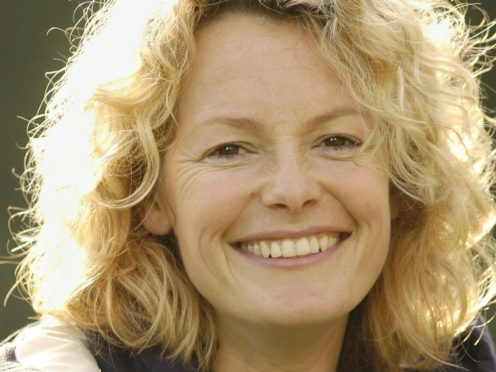TV presenter Kate Humble has spoken of the uplifting benefits she has found from going out walking.
The former BBC Springwatch host said walking helped her to relax, beat anxiety or stop feeling miserable and likened it to meditation.
She also found that she liked holding meetings outside – like Apple founder Steve Jobs – while walking her dogs because it aided creativity.
Humble, 49, said that growing up as a child in the countryside, walking was something she just did.
“When you grow up in the Seventies there isn’t a lot else to do. You go for a walk or climb a tree or you go to A&E because no-one had invented health and safety. Thank God,” Humble said.
“You have to make your own fun and you didn’t really think about it because it was part and parcel of what you did if you were not at school, doing your homework or in bed.”
Humble said that after living and working in London for 20 years, she started to miss the countryside.
“I really missed the way I grew up. The first few years were really good fun but something happened… age,” she said.
“You start to hanker for your roots. It wasn’t so much the geographical roots, it was just the muddyness of my roots.
“I found myself going out for weekends for respite.”
Humble, who now lives in the Wye Valley with her TV producer husband Ludo Graham, was speaking at the Cheltenham Literature Festival to promote her new book, Thinking On My Feet, which promotes the virtues of walking.
“It was actually the consciousness of walking being something I needed, something precious, actually happened quite recently. That was the seed that germinated into this book,” Humble said.
“It was while walking that I took great pleasure in tiny things. A morning in February and you think you’re so done with winter and you notice the first snowdrop coming up.
“Those tiny things, those tiny connections with nature and the world have an extraordinarily uplifting effect. Then I began thinking, is it just me or am I mad? Other people must think this.
“If I was feeling miserable, if I was feeling anxious, if I was writing and needed to come up with a creative solution, walking seemed to help and that’s when I realised it isn’t something to take for granted, this is something to treasure and to do and maybe even write about.”
Humble urged other people to try walking as a way to relax and said she had interviewed a therapist in New York who met clients while walking around Central Park.
“Maybe it’s almost akin to meditation. I’m not very good at sitting still, so meditation was never going to work for me,” Humble said.
“Maybe it just allows your brain to settle and to get things into perspective, to be able to prioritise things somehow, that maybe if you’re sitting at a desk in a room with that awful blank sheet of paper syndrome where you are sitting in a panic, and somehow when you go outside everything seems to relax a bit.
“There is something about being in a room with a stranger that is quite confrontational and nerve-racking at times and silences can feel awkward.
“When you’re walking, not making eye contact is quite sensible because you might fall over something and pauses feel very natural because there is always something to look at.”
